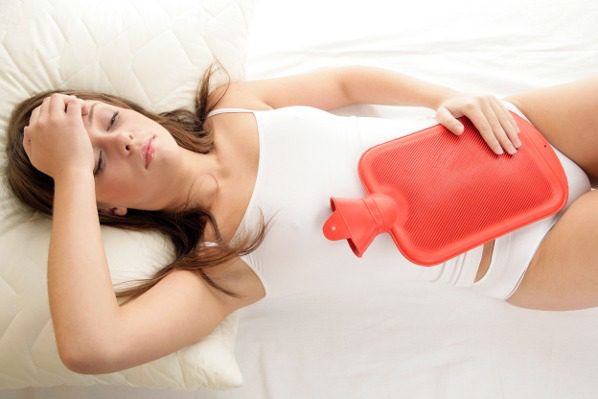You’ve had your injections, packed your first aid kid and spent a fortune on sunscreen. You’re all ready to head off into the unknown, right? Well not quite.
As well as general travel health stuff – women have some special health issues to consider and a little extra preparation will maximize the chance of healthy, worry-free travels.
This guide will give you some general pointers, but it’s always a good idea to discuss your plans with a doctor or travel health specialist. Experts advise getting a full body ‘MOT’ and smear test before going on a long trip. Schedule this well in advance so that you know the results before you leave.
If you do get ill while traveling, try to visit a local doctor. Language obstacles and embarrassment will make great anecdotes once you’re better, but lasting damage to your health won’t.
Menstruation
Your hormone levels are easily disrupted by changes in routine, time zone, diet, body weight and the amount of exercise you are getting. As all of these things happen when you travel, your periods may become irregular, more painful or even stop altogether, returning to normal after a few months.
Missed periods could also be a sign of pregnancy or a sexually transmitted infection. If you think this is a possibility, don’t wait until you get home to seek medical advice.
Will I be able to buy tampons and sanitary pads everywhere?
Perhaps not in the middle of a rainforest, but even the smallest pharmacies and supermarkets usually have something. It’s worth stocking up when you find your favorites, as local brands may feel uncomfortable.
Remember to remove tampons after four to six hours and use a sanitary towel instead of a tampon at night to reduce the risk of toxic shock syndrome.
Can I take the contraceptive pill to control my periods?
A common side effect of the combined contraceptive pill is lighter and more predictable periods and some women take it for this reason alone. For shorter trips, the pill can be used to skip periods altogether. Ask a doctor or a family planning clinic for advice.
Contraception
If you are planning to take your usual oral contraceptive pill while you travel, remember to pack the instruction leaflet that came with your pills. Take enough pills for the whole trip, plus some spares – you never know what (or who) will delay your return. Take (and use) a supply of reliable condoms; the pill gives you no protection against sexually transmitted infections.
Will the contraceptive pill work if I get ill?
If you suffer from traveler diarrhea or vomiting, your contraceptive pills might not be absorbed properly. Use extra contraception while you are ill and for seven days afterwards. Your pill instruction leaflet will tell you exactly what to do.
Does the contraceptive pill increase my risk of DVT?
Traveling for extended periods of time, particularly on long-haul flights, is thought to increase the risk of potentially fatal blood clots forming in the legs. This is called deep-vein thrombosis (DVT) and is also a rare side-effect of the combined contraceptive pill. Anyone can take steps to reduce the risk of travel-related DVT, but it may be especially important if you are taking the combined pill.
If you have a long plane or bus journey (over five hours), exercise your legs as much as possible, drink plenty of water and avoid alcohol and sleeping pills. You can also buy elastic compression socks at the airport – they might not win style prizes, but they will improve the circulation in your legs.
Women taking the combined pill may also be at more risk of DVT when traveling in high altitude areas. If you are planning to stay at over 3,500 meters for several weeks, ask your doctor about alternative contraception. The combined pill is definitely not recommended if you will be spending over a week at very high altitude (4,500 meters or more).
If you feel an unexplained, severe pain in either calf, stop taking your pills immediately and seek medical advice.
Does it matter if I change time zone?
This is not a problem as long as you take one pill every 24 hours. It is better to take a pill early rather than late, so if the time zone change means you would have to take your pill in the middle of the night, take it before you go to bed instead of leaving it until the morning. If you are more than 12 hours late taking a pill, follow the pack instructions about using extra precautions.
Do antibiotics stop the pill from working?
Some antibacterial drugs (antibiotics) were thought to make the combined contraceptive pill less reliable by reducing the amount absorbed into the blood. More recent research suggests this probably isn’t true, but experts still advise taking certain precautions.
- If you need to take a short course of antibiotics, use extra contraception while you are taking the medication and for seven days afterwards.
- For a longer course of antibiotics (for example, taking doxycycline to prevent malaria) you will need to use extra contraception for the first cycle or 28 days.
- The British National Formulary advises contraceptive patch users to take the same precautions – see your instruction leaflet or ask your doctor for more information.
If you are prescribed or buy any other drugs while traveling – especially antibacterial or anti-fungal medication – check your pill instructions or ask the pharmacist about possible interactions.
What about emergency contraception?
The ‘morning-after pill’ can be used to prevent pregnancy if a condom splits or if you have unprotected sex. It should not be used as a regular form of contraception. Most brands consist of two pills – take the first within 72 hours of having unprotected sex and the other dose 12 hours later.
Remember that if you have had unprotected sex, you might also have picked up a sexually transmitted infection.
Sexually Transmitted Infections
Sexually transmitted infections (STIs) are a risk for everyone but some, such as herpes, are more common in women. Women also have a higher risk of infection with diseases such as gonorrhoea after a single sexual encounter. Some STIs, for example chlamydia, can be symptom less in women and are therefore harder to spot. If left untreated, they may cause serious long-term complications including infertility.
Although you can’t be vaccinated against most STIs, they are the easiest infections to prevent. But if your vision of world travel doesn’t include celibacy, using condoms will greatly reduce your risk of catching an STI. Contraceptive pills, patches, injections and IUDs offer no protection.
If you start to suffer from abdominal pain (especially during sex), an unusual discharge and/or fever go and see a doctor.
Cystitis and Thrush
Women are particularly prone to cystitis and thrush, so it’s a good idea to pack the appropriate medications. These can be bought at pharmacies without a prescription. If you do self-diagnose and treat an infection while you are traveling, go for a check-up when you get home.
What do I need to know about cystitis?
This is a general name for an infection or inflammation of the bladder. There are several different types of cystitis, but the symptoms are often similar: a burning pain when urinating, the need to urinate more often and dark or cloudy urine.
Mild cystitis will get better by itself in a few days, but there are a few things you can do to help.
- Potassium citrate or sodium citrate mixtures will ease the pain of cystitis by making your urine less acidic.
- The bacteria that cause cystitis live in the intestine so make sure you wipe from front to back after using the loo.
- Urinating straight after sex and drinking cranberry juice may help to prevent cystitis coming back.
If symptoms continue or there is blood in your urine you should see a doctor. The infection can spread to the kidneys and may require antibiotic treatment. If you are sexually active, bear in mind that cystitis-like symptoms can be caused by some STIs.
What do I need to know about thrush?
This is a fungal infection that can be kicked off by heat and sweating, changes in diet, stress, the contraceptive pill, increased sex and antibiotics, including the antimalarial drug doxycycline. Although it mostly affects women, men can carry thrush and pass it on during sex. The most common symptoms include severe itching and a thick, white, lumpy discharge.
Thrush can be easily treated with anti-fungal tablets, creams or pessaries. The following advice may also help to cure or prevent an infection.
Healthy Eating
What you eat can affect your menstrual cycle, energy levels, appearance, long-term health and resistance to disease. This means that a balanced diet is especially important for healthy traveling.
What do I need to know?
There is no need to memorize long lists of vitamins and minerals, or analyze the nutritional value of every meal, but there are a couple of nutrients that are especially important for women.
Should I take vitamin supplements?
There are several supplements marketed specifically at women. While they could help top up your vitamin and mineral intake as you travel, there are some risks to be aware of too. For example, a large dose of vitamin A supplements can be toxic and some calcium supplements reduce the amount of iron absorbed from your food.
Certain supplements may interact with other drugs. Doxycycline tablets, for example, should not be taken within three hours of tablets containing calcium, iron, zinc or vitamin A. Read the instruction leaflets that come with your medications, and tell your doctor if you plan to take vitamin and mineral supplements at the same time as prescribed drugs.
Packing List
Here is a quick reminder of things to add to your packing list:
- Anti-fungal cream, powder or tablets to treat thrush – Potassium citrate mixture to treat cystitis.
- The information leaflets from all your medications.
- Condoms with the British Kitemark.
- Sanitary pads and tampons, in a waterproof container.
- Painkillers that you know will help menstrual pain.
- A supply of contraceptive pills to last the trip and extra packets to cover delays, or if you are planning to skip the break between packets.
- A great sports bra. You may not be feeling sporty, but you’ll appreciate it for everything from bus journeys on unsurfaced roads to camel riding.
Things to Consider:
- Use sanitary pads rather than tampons during periods.
- Wash your underwear in hot water and let it dry thoroughly.
- Avoid sex until the infection has cleared up.
- Coat a tampon with live yogurt to encourage ‘friendly’ bacteria to grown in the vagina. This may be particularly useful if you can’t find a pharmacy.
- To reduce your chance of reinfection, wear loose cotton underwear and change it often, especially after exercising.
- If you often suffer from thrush, tell the doctor or travel clinic that helps you choose an antimalarial medication.
- Women of all ages need to keep their calcium levels topped up to reduce the risk of developing brittle bones later in life. Boosting your calcium intake may also help to relieve the symptoms of PMS. From lassis in India to lattes in LA, find ways to eat milk, yogurt and cheese as you travel. Other calcium-rich foods include beans, fish, sunflower seeds and tofu.
- Monthly bleeding makes women more prone to iron-deficiency, which can lower your resistance to infection and cause tiredness, weakness, lank hair and brittle nails. Traveling can mean extra exercise and a less-than-perfect diet, which puts you at even more risk. Try to include a good source of iron, such as beans, meat, tuna, leafy vegetables, nuts, potato skins, tofu or dried fruit, in every meal.

Co-Founder of the OFT Blog. Mother of 2 who disguises as a 9 to 5 finance professional on most days. She loves to travel, is an amateur website builder and cook. And given her day job, she loves travel planning and saving money. Follow along!







